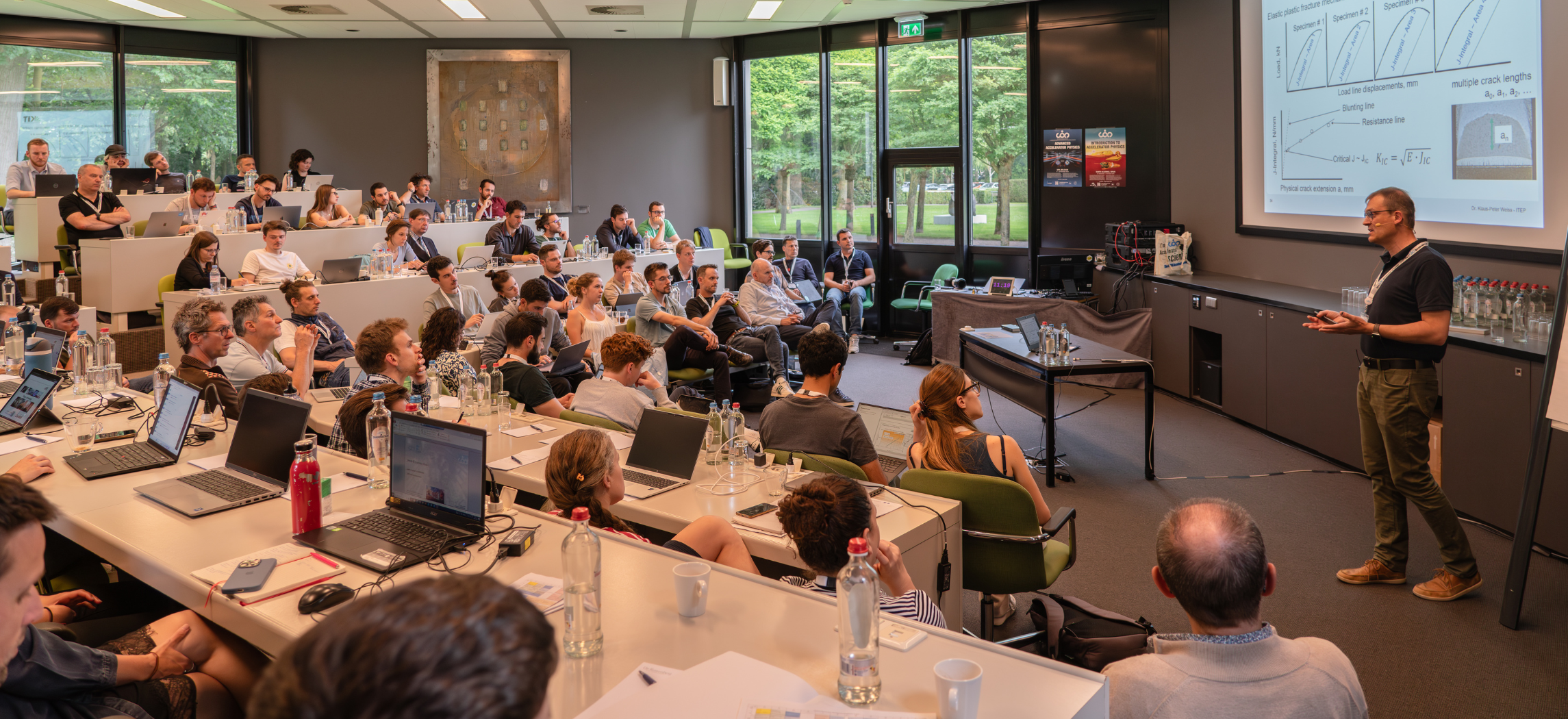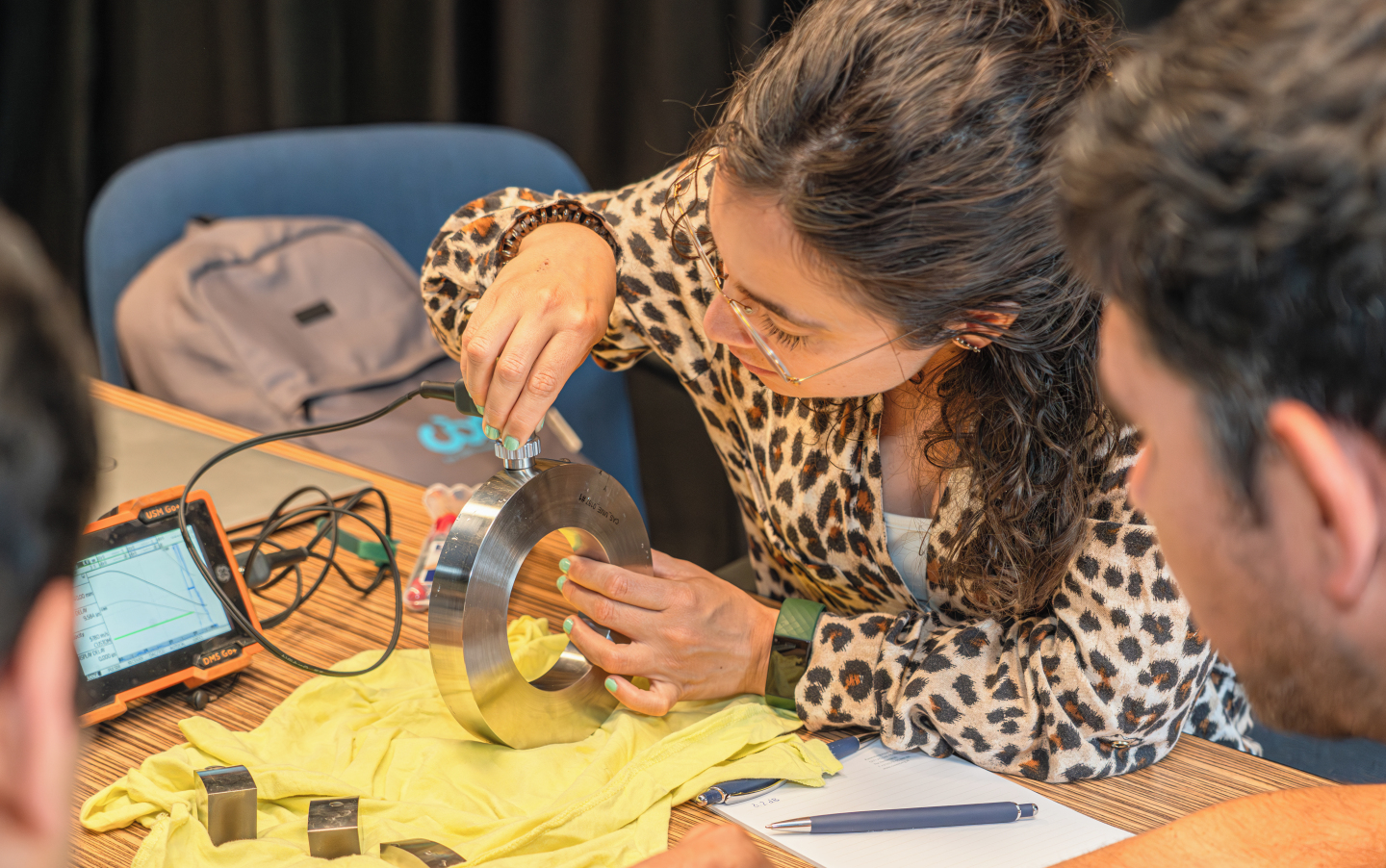For the first time in its 41-year history, the CERN Accelerator School (CAS) this summer ran a course specifically dedicated to mechanical and materials engineers. The goal is to open the door for more engineers to move into the specialised accelerator industry to help the sector advance with new technologies and large infrastructure projects.
The Mechanical & Materials Engineering (MME) Course for Particle Accelerators and Detectors ran between June 2 to 15 and involved 85 participants, with more than 40 hands-on specialists and lecturers to provide the training. It was held in the Netherlands and was co-organised by the Dutch National Institute for Subatomic Physics, Nikhef.
To understand why it is the first time that CAS offers this training to engineers, it is necessary to go back to the 1990s when CAS courses primarily focused on accelerator physics, with accelerator technologies being taught only as supplementary information.
Over time, while there were advances in accelerator physics, significant progress was made in accelerator technologies. Advances in radio frequency (RF), superconductivity, and vacuum technologies were critical for accelerator projects like CERN’s Large Hadron Collider; without these, today’s accelerator projects would be unimaginable. Accelerator technologies also developed in industry, transforming society through security scanning, cancer treatment, and food and materials sterilisation.
Hence starting in the early 2000’s, CAS organised more and more courses dedicated to accelerator technologies, and most of the courses included practical, hands-on exercises, providing participants with a unique opportunity to test, try, and experiment with real equipment.

But throughout CAS’s history, mechanical engineering has never, until now, been part of the course programme, despite material science, precision machining, brazing techniques, computer-aided design, and similar subjects being integral to almost all accelerator technologies.
In response to the growing demand for expertise and training in the field, a CAS course on MME was planned for 2019. It was unfortunately delayed due to the COVID-19 pandemic and had to be re-organised for this year.
This course was truly career changing, and at least twice as good as what I expected, and I expected a lot
The importance of this discipline in the field of accelerator science cannot be overstated. This course had a waiting list from shortly after the registration opened.
Its programme gave the occasion to share 70 years of CERN experience in mechanical and materials engineering, which spans every phase of the engineering process—from initial concepts to final implementation. This includes advanced calculations, a deep understanding of material life cycles, and proficiency in non-destructive testing, along with advanced fabrication techniques designed for extreme conditions.
Whether operating in cryogenic or high-temperature environments, or enduring high radiation, intense magnetic fields, and vacuum conditions, solutions have to perform reliably under the most demanding circumstances. The course on MME was, from the participants’ and organisers’ perspective, a resounding success, providing mechanical engineers with a strong foundation in the specialised skills required for accelerator technology. The participants reported gaining a deeper understanding of both theoretical concepts and practical applications, setting the stage for future challenges and opportunities.
“This course was truly career changing, and at least twice as good as what I expected, and I expected a lot. Everything was smooth. Everything was fun. And all the exercises around the vacuum chamber were a stroke of genius,” said course participant Viren Bhanot, 35, a mechanical engineer at CERN working on CO² cooling systems.
“My sincere gratitude to the organisers. The course was an invaluable experience, said another participant, Jan Van Steenlandt, 25, a PhD candidate in the field of applied superconductivity at the University of Twente in the Netherlands. It's impossible to gain all this knowledge anywhere else,” he added.
Building a skilled workforce is critical to advancing transformative technologies in the accelerator industry and, as such, the CAS team is keen for this course not to remain a one-off. Just as RF, magnets, and vacuum are integral to CAS courses, mechanical and material engineering should also be part of the series, said Frank Tecker, head of CAS.
“We need to increase the frequency of courses to fulfill the diverse demands for special topical courses in the accelerator field,” Tecker said. “The field of accelerators has become much broader than just accelerator physics”.
Research and industry, especially in the emerging field of accelerator science, need trained physicists and engineers to build even more performant machines. The uniqueness and level of specialisation of all CAS courses make them among the most valued training courses worldwide in accelerator technologies.
All the information about the CERN Accelerator School and next courses can be found on their website: https://cas.web.cern.ch

